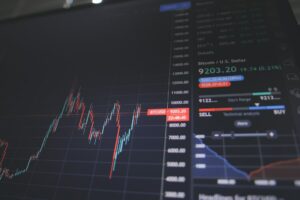The Pros and Cons of Automated Forex Programs
Forex trading is a popular and potentially lucrative investment opportunity. However, it requires a great deal of time, knowledge, and experience to be successful. As a result, many traders turn to automated forex programs to streamline their trading activities. These programs are designed to execute trades automatically based on pre-determined rules and algorithms. While they offer several benefits, they also come with their fair share of disadvantages. In this article, we will explore the pros and cons of using automated forex programs.
Pros of Automated Forex Programs:
1. Emotionless Trading: One of the biggest advantages of using automated forex programs is the elimination of emotions from the trading process. Emotional decision-making often leads to poor trading choices, such as selling too early due to fear or holding onto losing positions out of hope. Automated programs strictly adhere to the set rules and execute trades based on objective parameters, removing the emotional element from the equation.
2. Increased Speed and Efficiency: Automated forex programs can analyze vast amounts of data and execute trades in a matter of seconds. This speed and efficiency can be advantageous in a market where prices can change rapidly. Manual trading may lead to missed opportunities or delayed execution, which can result in lost profits. With automated programs, trades can be executed promptly, maximizing potential gains.
3. Backtesting and Optimization: Automated forex programs allow traders to backtest their strategies using historical data. This feature enables traders to evaluate the performance of their strategies and make necessary adjustments before risking real money. By analyzing past performance, traders can identify strengths and weaknesses in their strategies and optimize them accordingly. This process helps refine trading strategies and improve overall trading performance.
4. 24/7 Trading: Forex markets operate 24 hours a day, five days a week. Manual trading can be challenging for traders who have other commitments or need to sleep during certain trading sessions. Automated forex programs can trade round the clock, ensuring that no trading opportunities are missed, even when the trader is not available. This advantage allows for more flexibility and the ability to take advantage of global market movements.
Cons of Automated Forex Programs:
1. Lack of Flexibility: While automation provides convenience, it can also limit the trader’s ability to adapt to changing market conditions. Automated programs operate based on pre-set rules and algorithms, which may not always be suitable for every market situation. If the market behaves differently than anticipated, an automated program may continue to execute trades based on outdated rules, leading to losses.
2. Dependency on Technology: Automated forex programs heavily rely on technology and require a stable internet connection. Any technical glitch or interruption in connectivity can prevent the program from functioning correctly. Traders using automated programs must ensure that their systems are reliable and that they have backup plans in case of technical failures. Over-reliance on technology can also lead to complacency, as traders may neglect to stay updated with market news and other important factors.
3. Limited Human Judgment: Automated forex programs lack the ability to make discretionary judgments based on instinct or intuition. Human traders often rely on their experience and instincts to make decisions in uncertain market conditions. Automated programs, on the other hand, are programmed to follow specific rules and algorithms, which may not always account for unique market scenarios. This limitation can be a disadvantage, especially during periods of high market volatility or unexpected news events.
4. Potential for Over-Optimization: While backtesting and optimization are useful features of automated forex programs, they can also lead to over-optimization. Traders may be tempted to tweak their strategies excessively based on past data, resulting in strategies that are overly complex and only perform well in historical scenarios. Over-optimized strategies may fail to deliver consistent results in real-time trading, as they may not account for changing market dynamics.
In conclusion, automated forex programs offer several benefits, including emotionless trading, increased speed and efficiency, backtesting capabilities, and the ability to trade 24/7. However, they also come with drawbacks, such as limited flexibility, dependency on technology, limited human judgment, and the potential for over-optimization. Traders considering using automated forex programs should carefully weigh these pros and cons to determine whether automation aligns with their trading goals and preferences. It is important to remember that no program can guarantee success in the forex market, and traders should always exercise caution and make informed decisions based on their own analysis and understanding.






